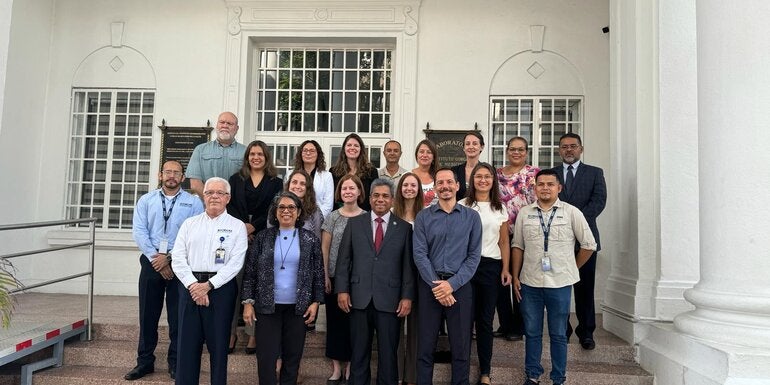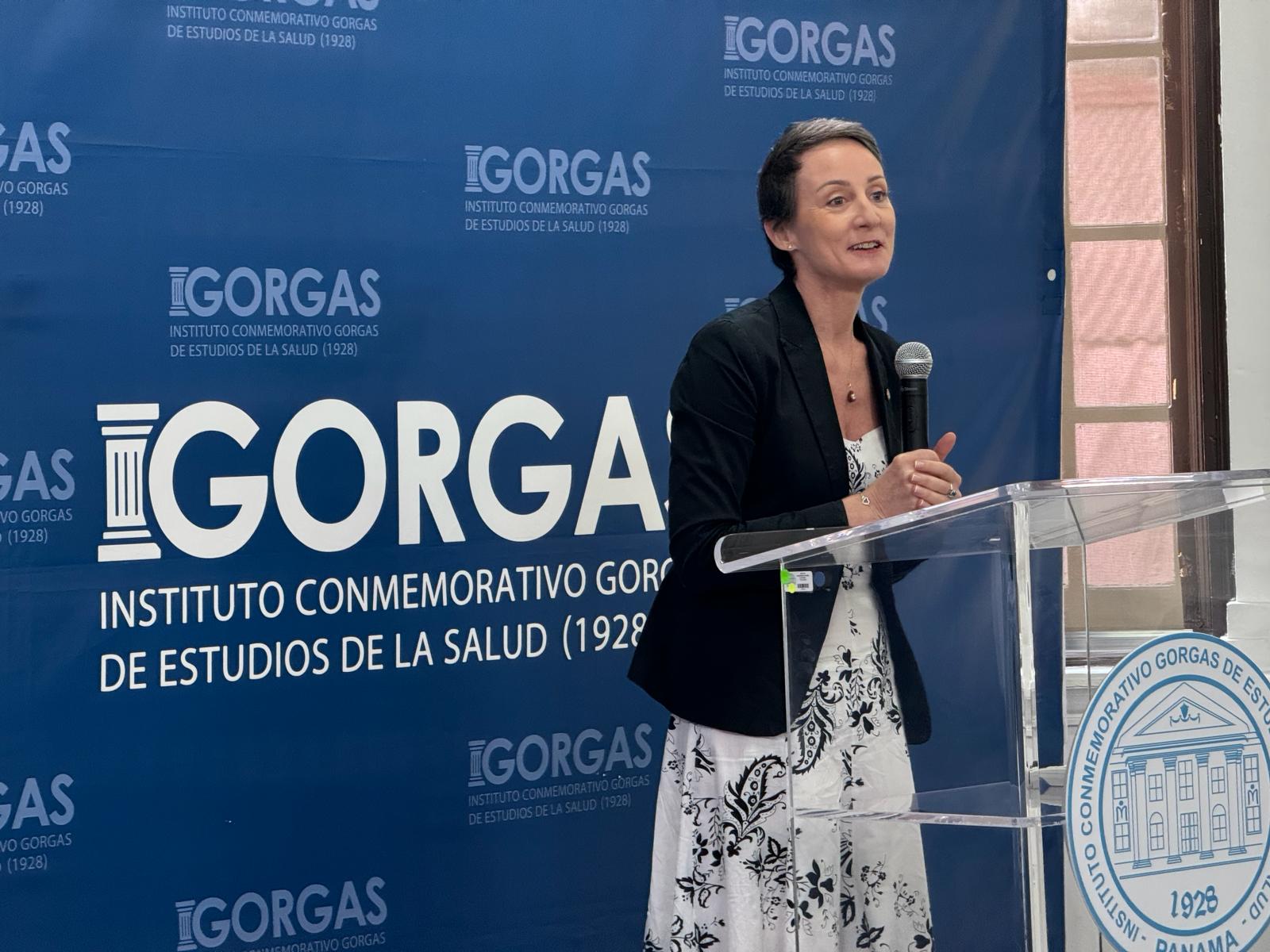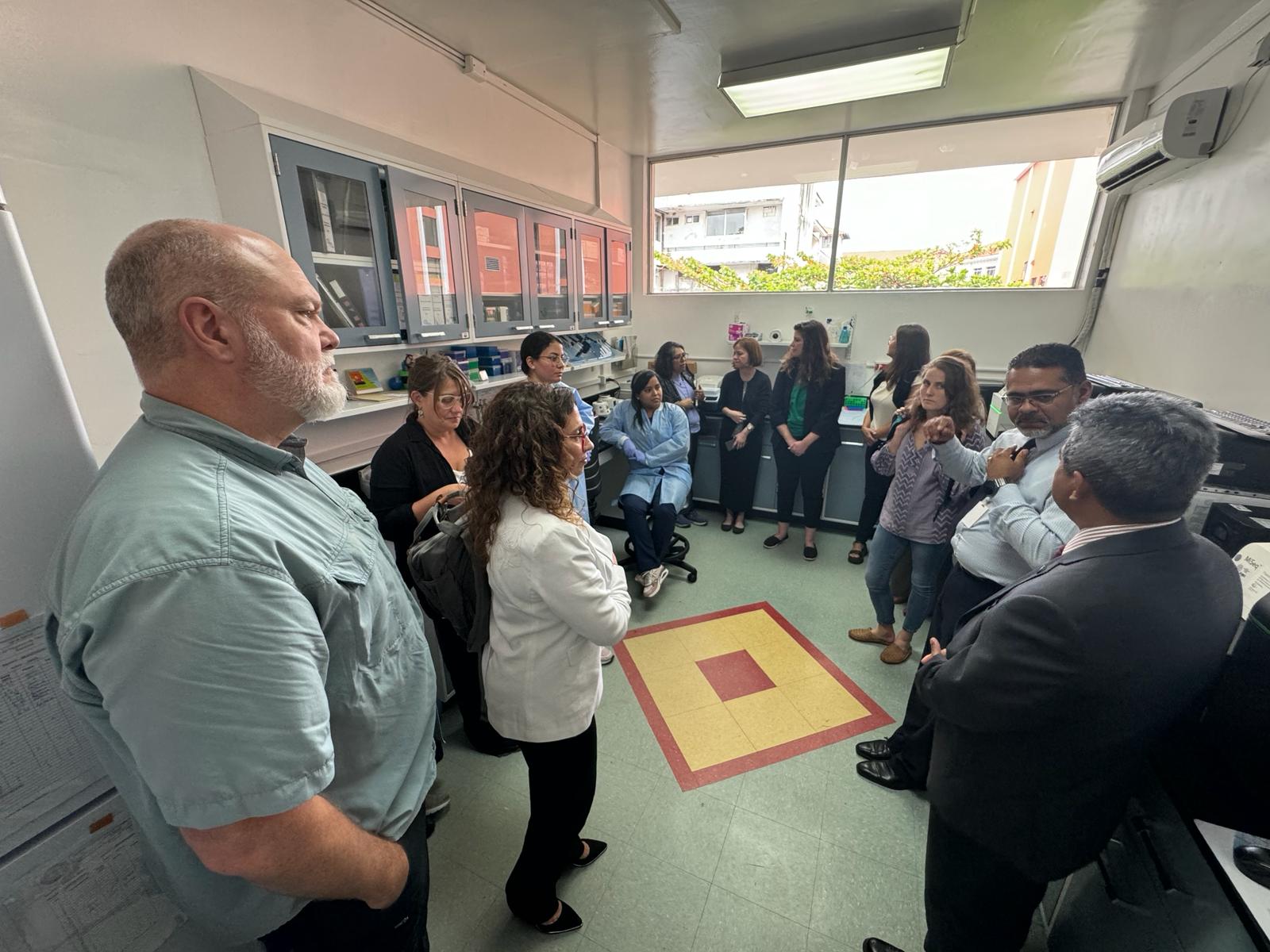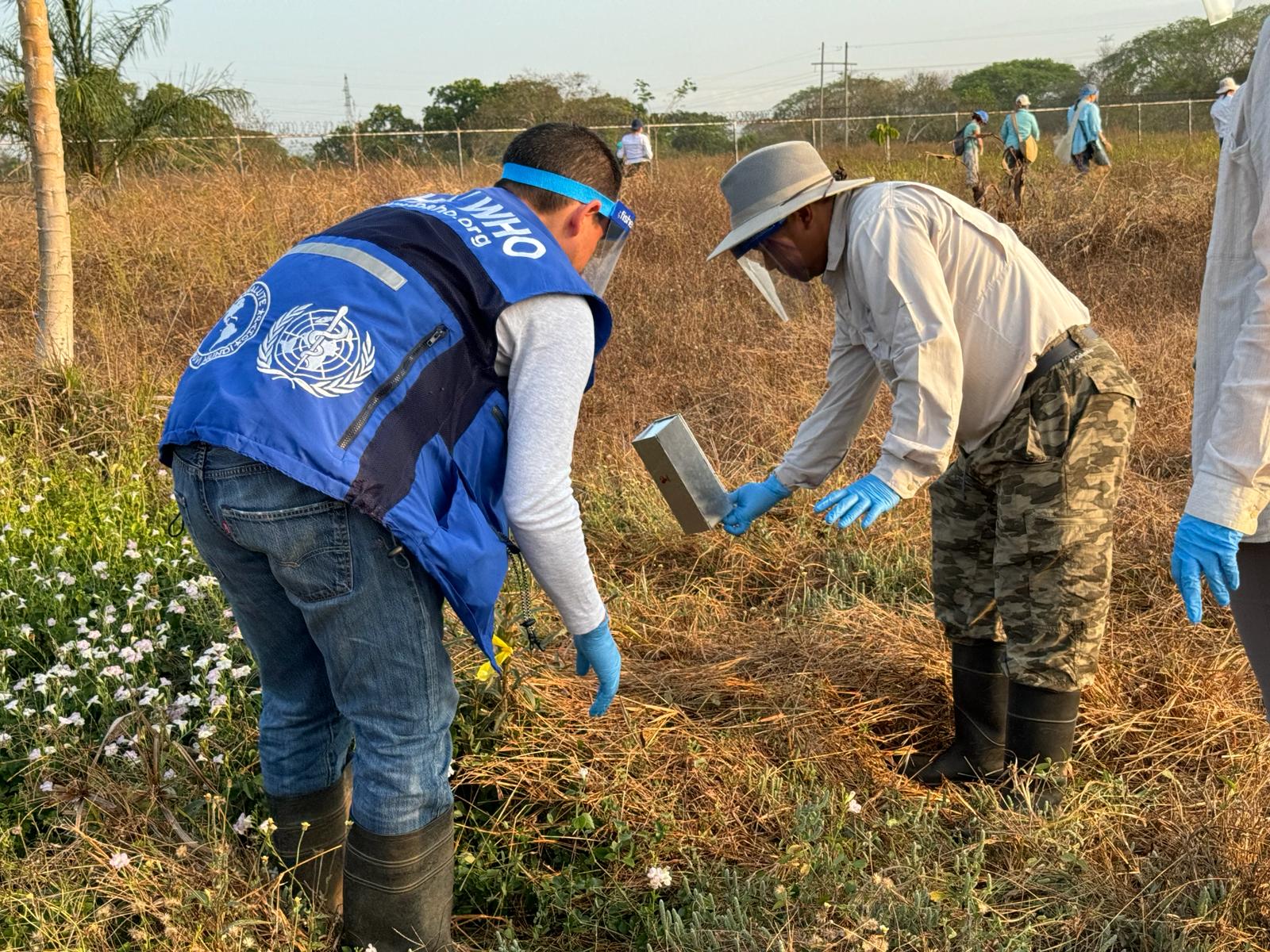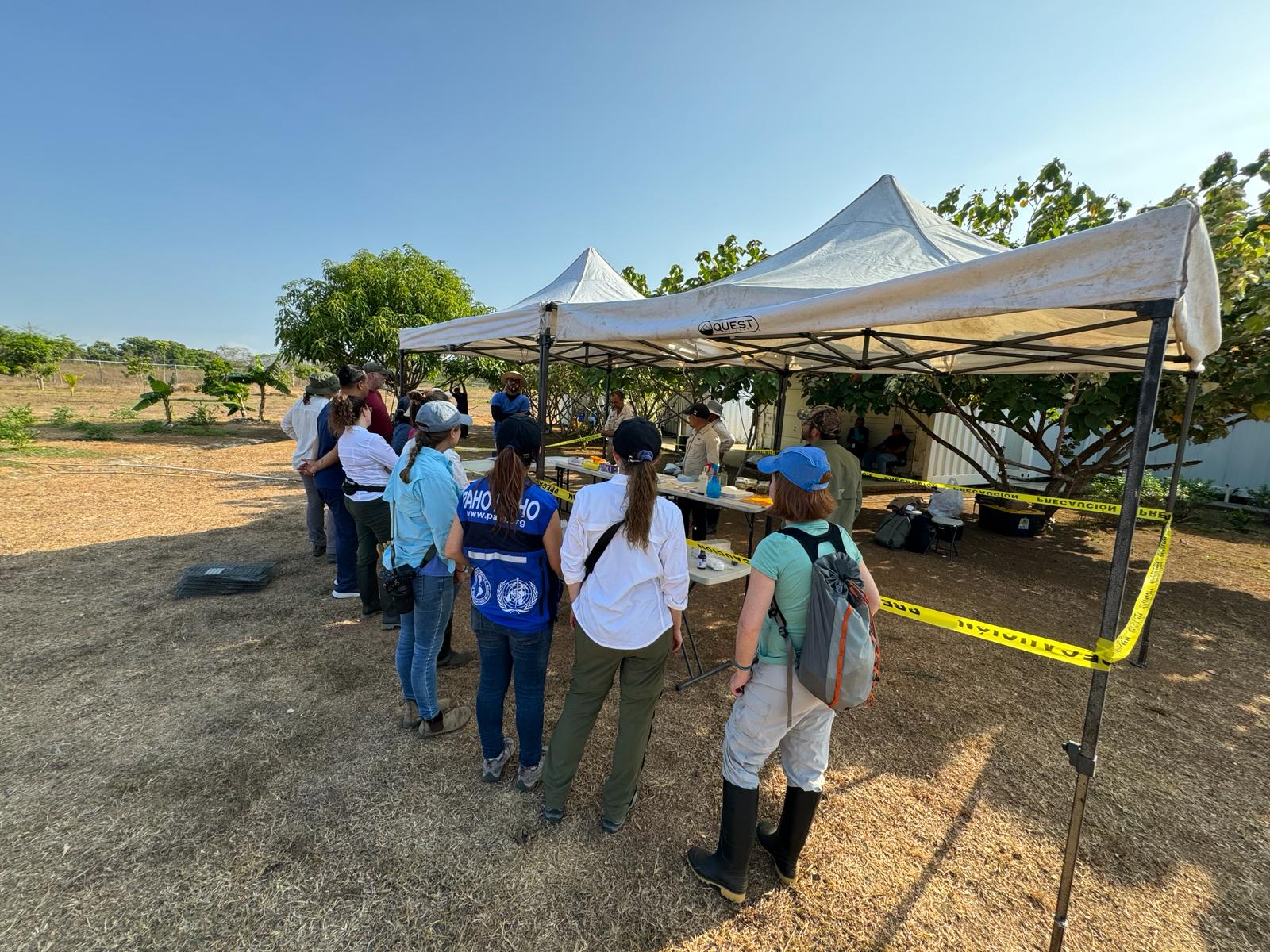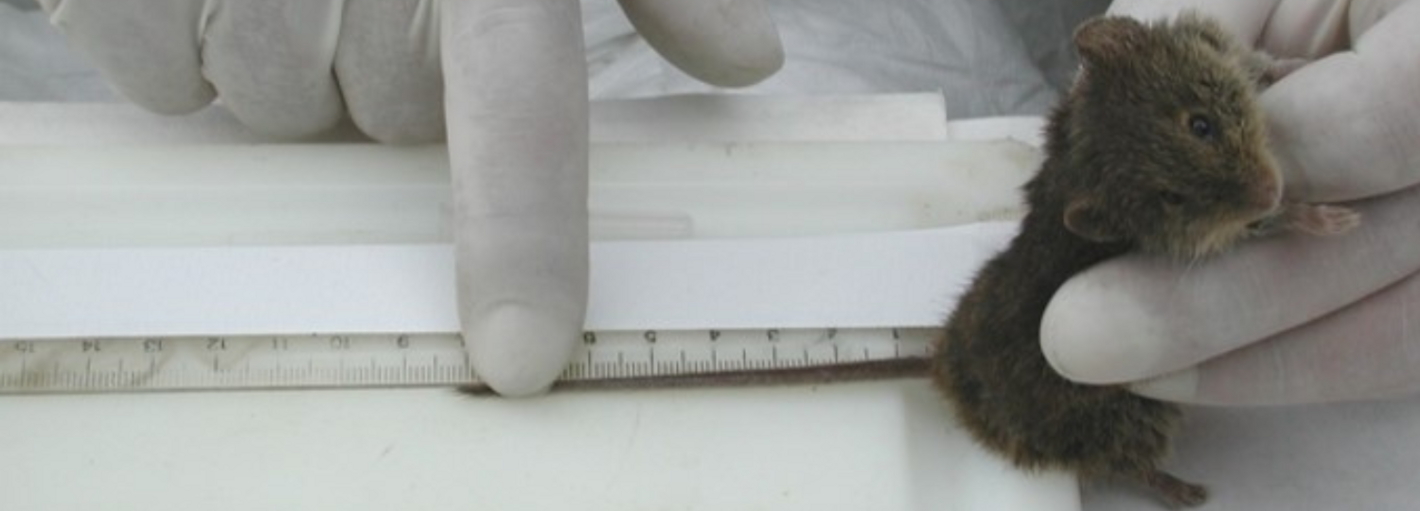
Panama, 11 March 2024 (PAHO/WHO) - In a collaborative effort to strengthen regional capacity for surveillance of diseases caused by hantavirus and arenavirus transmitted by rodents in the Americas, the Gorgas Commemorative Institute for Health Studies (ICGES) in Panama has hosted a significant meeting of international collaboration. From March 11th to March 15th, experts from ICGES (Panama), the National Institute of Human Viral Diseases (INEVH) of Argentina, the Centers for Disease Control and Prevention (CDC) of the United States, and the Pan American Health Organization (PAHO) have convened to advance this critical initiative for the region.
This encounter is part of a series of collaborative actions between the mentioned institutes and PAHO, aimed at improving surveillance, detection, and prevention of diseases caused by hantavirus and arenavirus in the Americas.
Previously, joint missions involving CDC, ICGES, and INEVH were carried out, focusing on the development of guidelines and training workshops to address regional needs. The latest workshop took place in Colombia in September 2023, where epidemiologists and laboratory technicians from nine countries were trained. The current mission in Panama aims to develop conceptual and technical materials, incorporating elements of ecological surveillance and sequencing into regional guidelines.
Dr. Ana Rivière-Cinnamond, PAHO/WHO Representative in Panama, highlighted her commitment to advancing the infectious disease agenda while praising the continuous progress of activities, thanks to the efforts and dedication of professionals present, both regionally and globally. She also expressed her willingness to support efforts in Panama and other countries, showing interest in actively participating in the field on future occasions.
The specific objectives of the visit are:
- Align strategies, protocols, and approaches among participants to prepare a regional training focused on surveillance and detection of hantavirus and arenavirus.
- Review laboratory protocols, equipment, and strategies, with an emphasis on molecular techniques, for possible implementation in regional training.
- Visit sequencing laboratories to identify needs and potential opportunities for future training.
- Conduct a fieldwork exercise on the safe capture and sampling of rodents for the ecological surveillance component.
The integration of these objectives aims to ensure an effective and coordinated response to potential outbreaks of these diseases in the region.
Dr. Juan Miguel Pascale, Director of ICGES, stressed the importance of collaboration and joint work to address public health challenges, recalling the experience during the outbreak of atypical pneumonia caused by hantavirus in Panama in 1999-2000. At that time, the response was a collective effort involving the investigation of various hypotheses and international collaboration for diagnosis and virus identification. Since then, significant progress has been made in understanding the epidemiology and control of the virus, thanks to the continuous and dedicated work of the professionals involved. Furthermore, the importance of international cooperation was emphasized, exemplified by the recent joint initiative between CDC, INEVH, and PAHO's Emergency Department Infectious Hazards Management Unit (PHE/IHM) to standardize molecular diagnostics of hantavirus.
Esta colaboración internacional no solo fortalecerá la capacidad de los países de las Américas para enfrentar la amenaza de hantavirus y arenavirus, sino que también sentará las bases para una cooperación continua y un intercambio de conocimientos en materia de salud pública, marcando un paso significativo en la lucha regional contra enfermedades emergentes y reemergentes, demostrando el compromiso de las instituciones y los países involucrados en la protección de la salud pública en las Américas.
This international collaboration will not only strengthen the capacity of countries in the Americas to face the threat of hantavirus and arenavirus but also lay the groundwork for ongoing cooperation and knowledge exchange in public health, marking a significant step in the regional fight against emerging and re-emerging diseases, demonstrating the commitment of the institutions and countries involved in protecting public health in the Americas.

